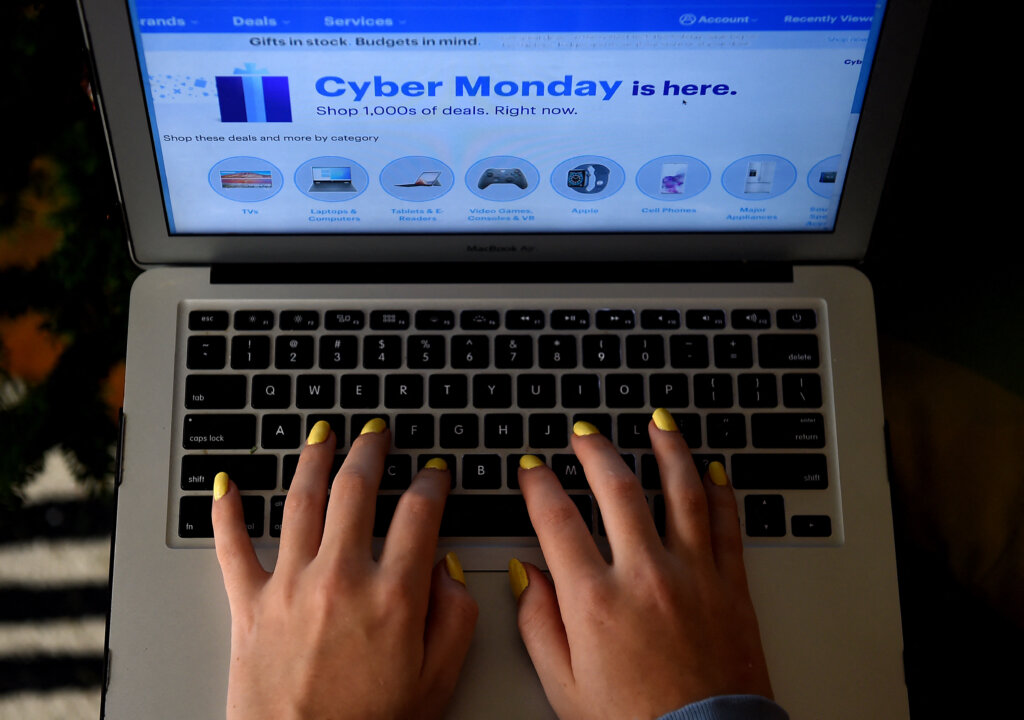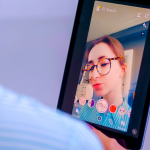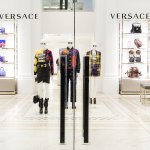
The pandemic has changed the way consumers use digital solutions and e-commerce, with those in emerging economies making the most significant shift to online shopping platforms.
PWC’s June 2021 Global Consumer Insights Pulse Survey reported that this shift to online shopping occurred during the initial lockdowns in Q1 2020 and many people worked from home. Digital is also influencing the purchasing decision of affluent shoppers that are more likely to browse and research online before purchasing. To adapt to changing expectations, top-tier retail brands invest in omnichannel strategies to offer high-end experiences — from stores into the digital realm.

According to an industry tracker, online deals for gadgets, games, wine, and clothes put “Cyber Monday” sales on track for record levels in the United States. (Photo by Olivier DOULIERY / AFP)
The shift toward online marketplaces
Luxury fashion brands were initially reluctant to enter the e-commerce space as purchasing high-end items was considered an exclusive offline experience – touching and holding. However one-third of all personal luxury purchases will take place digitally by 2025, with those revenues reaching an estimated $136 billion, according to Bain & Co. Therefore, luxury brands are leaning into the online marketplace movement, with many jumping on the omnichannel bandwagon by diversifying their offerings across physical and digital.
It was reported that businesses with robust omnichannel strategies retain an average of 89% of their customers and an average of 9.5% year-over-year increase in annual revenue.
Adapting fashion in an increasingly omnichannel world
Gen Z and millennials will represent more than 40% of the overall luxury goods market by 2025. To keep up with younger demographics, luxury brands are starting to use the power of social media. This is part of an omnichannel pivot to their marketing strategies. An excellent example of this is Christian Louboutin, Gucci, and Burberry — who showcase their luxury items, creating brand aesthetic and story engagement on Instagram.
In 2018, Gucci introduced a new digital campaign featuring scannable ads and augmented and virtual reality. Coined as Gucci Hallucination, according to Statistica the campaign recorded an increase of 24.9% in revenue that year, reaching the highest peak in eight recent years.
Meanwhile, NewStore’s 2021 Omnichannel Leadership Report placed Louis Vuitton in the first place as its website prominently offers both virtual and in-store appointments that can be booked online with just a few clicks.

Exclusively was a platform for luxury and premium fashion goods. Pic: Unsplash
YOU MIGHT LIKE

Why virtual try-ons could be fashion’s holy grail
Omnichannel fashion for the win
Customers expect a premium experience when interacting with a luxury brand. But, unfortunately, that expectation doesn’t go out the window when it comes to a digital experience. According to Merkle’s Experience Impact report, 66% of customers care more about the experience than about product or service price. Additionally, the behavior study reported that 52% would stop shopping on a brand website due to a poor site experience.
In Future by retail operations: winning in a digital era by McKinsey & Company, it was reported that for retailers to remain viable in this environment, they must constantly improve their store economics by simplifying, eliminating, or automating routine activities.
Customers are looking to meet their needs in the most efficient way possible. Adrien Nussenbaum, co-founder and U.S. CEO, Mirakl, said, “Every retailer needs a strong grasp on marketplace strategies to compete in today’s digital-first economy.”
The massive shift towards online shopping continues, and online marketplaces help drive product discovery and increase sales. Therefore, omnichannel is what customers are looking for, which will become the industry norm for luxury brands.









